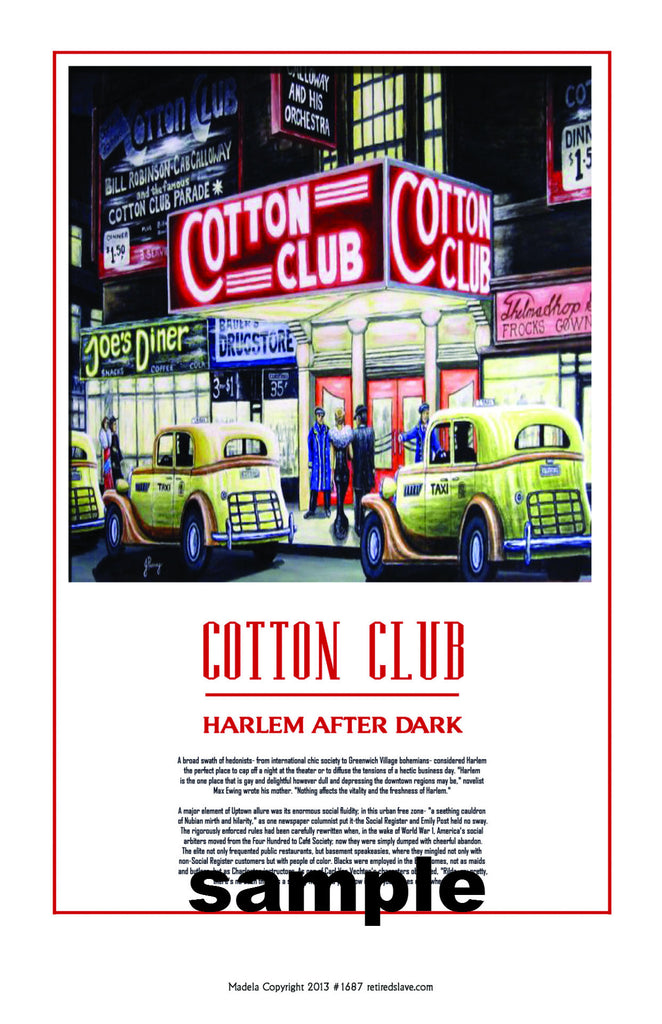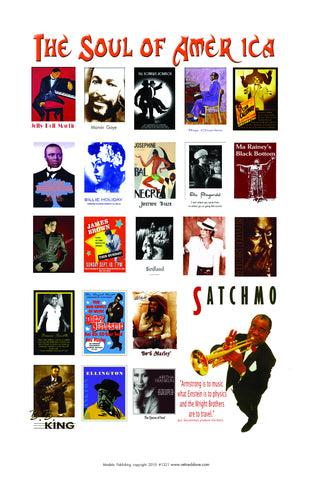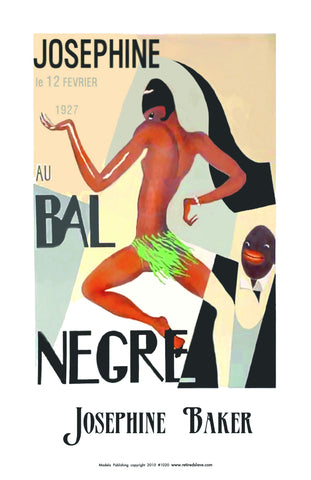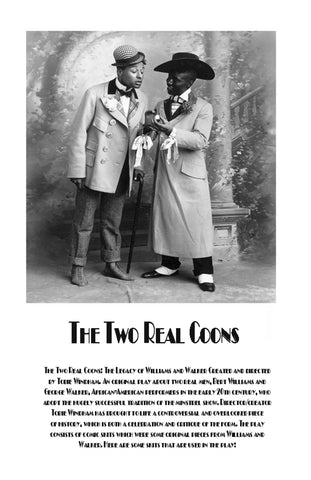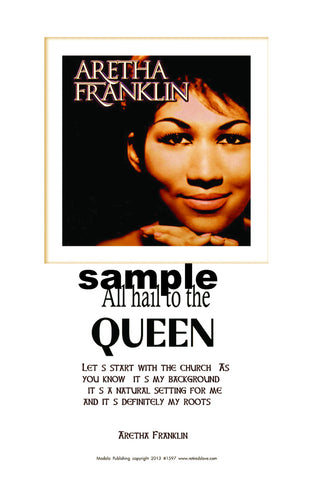COTTON CLUB #1687
$ 10.00
Caption from poster__
COTTON CLUB
HARLEM AFTER DARK
A broad swath of hedonists- from international chic society to Greenwich Village bohemians- considered Harlem the perfect place
to cap off a night at the theater or to diffuse the tensions of a hectic business day. "Harlem is the one place that is gay and
delightful however dull and depressing the downtown regions may be," novelist Max Ewing wrote his mother. "Nothing affects the
vitality and the freshness of Harlem."
Disco Man."
A major element of Uptown allure was its enormous social fluidity; in this urban free zone- "a seething cauldron of Nubian mirth and
hilarity," as one newspaper columnist put it-the Social Register and Emily Post held no sway. The rigorously enforced rules had been
carefully rewritten when, in the wake of World War 1, America's social arbiters moved from the Four Hundred to Café Society; now they
were simply dumped with cheerful abandon. The elite not only frequented public restaurants, but basement speakeasies, where they
mingled not only with non-Social Register customers but with people of color. Blacks were employed in the best homes, not as maids
and butlers, but as Charleston instructors. As one of Carl Van Vechten's characters observed, "Rilda, my pretty, there's no such thing
as a set any more and you know it. Everybody goes everywhere."
